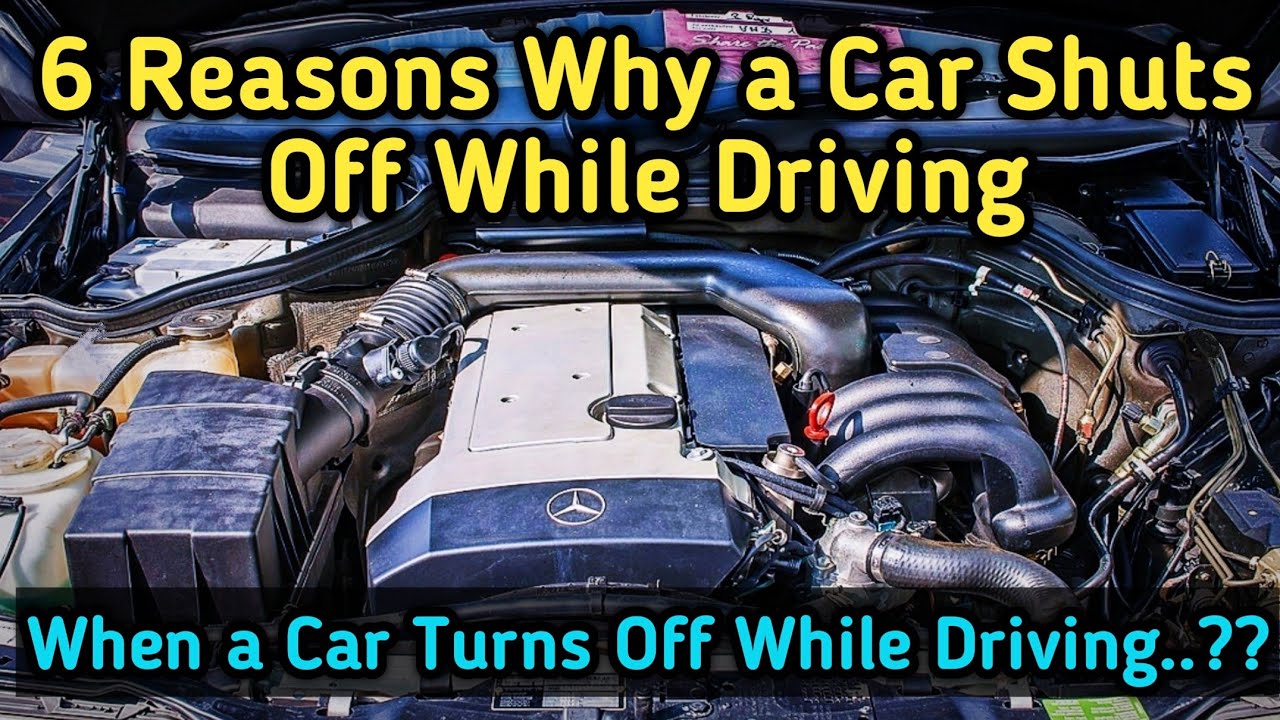What Causes A Car To Cut Off While Driving

Experiencing a car cutting off while driving is a frightening and potentially dangerous situation. The sudden loss of power can leave you stranded and, more importantly, compromise vehicle control. Understanding the potential causes of this problem is crucial for both diagnosing the issue and preventing it from happening in the first place. This article delves into the common culprits behind engine stall while driving, offering insights for both car owners and automotive professionals.
Fuel System Problems: Starving the Engine
One of the most frequent causes of an engine shutting down unexpectedly relates to the fuel system. The engine needs a consistent supply of fuel to run, and any disruption can lead to a stall.
- Fuel Pump Failure: The fuel pump is responsible for delivering fuel from the tank to the engine. A failing fuel pump might work intermittently before failing completely, causing the engine to cut out, especially under load (like accelerating or going uphill). Signs include difficulty starting, sputtering, and a noticeable whining sound from the fuel tank area.
- Clogged Fuel Filter: The fuel filter prevents contaminants from reaching the engine. A clogged filter restricts fuel flow, especially at higher RPMs. Replacing the fuel filter at recommended intervals is crucial.
- Faulty Fuel Injectors: Fuel injectors spray fuel into the engine's cylinders. Dirty or malfunctioning injectors can disrupt the fuel-air mixture, leading to stalling or misfires. Professional cleaning or replacement might be necessary.
- Empty Fuel Tank (Surprisingly Common): While it seems obvious, a faulty fuel gauge can provide a false reading, leading to the engine running out of fuel despite what the gauge indicates.
Ignition System Issues: Sparking Trouble
The ignition system provides the spark needed to ignite the fuel-air mixture in the cylinders. Problems here can also lead to engine stalling.
- Faulty Ignition Coil(s): Ignition coils amplify the voltage needed to create a spark. A failing coil can cause intermittent misfires and eventually engine stall, especially under stress. Modern cars often have individual coils for each cylinder, so a failing coil can be isolated more easily.
- Bad Spark Plugs: Spark plugs ignite the fuel-air mixture. Worn or fouled spark plugs can misfire, causing rough running and stalling. Replacing spark plugs at the recommended interval is essential for optimal engine performance.
- Failing Crankshaft or Camshaft Position Sensor: These sensors provide crucial information to the engine control unit (ECU) about the position of the crankshaft and camshaft. If these sensors fail, the ECU won't know when to fire the spark plugs or inject fuel, leading to a stall.
- Distributor Problems (Older Vehicles): In older vehicles with a distributor, a faulty distributor cap, rotor, or ignition module can disrupt the spark timing and cause the engine to stall.
Electrical System Malfunctions: Wiring Woes
The electrical system is the nervous system of your car, and any issues can impact engine operation.
- Faulty Alternator: The alternator charges the battery and powers the electrical system while the engine is running. A failing alternator might not provide enough power to the ECU and other vital components, leading to a stall. Signs include dimming headlights, a warning light on the dashboard, and a slow engine crank.
- Loose or Corroded Battery Terminals: Poor connections at the battery terminals can interrupt the flow of electricity, causing the engine to cut out. Clean and tighten the terminals regularly.
- Wiring Issues: Damaged or corroded wiring can cause shorts or open circuits, disrupting the flow of electricity to critical engine components. This is often difficult to diagnose without specialized equipment.
- Failing ECU (Engine Control Unit): The ECU is the brain of the engine. While rare, a failing ECU can cause a variety of problems, including engine stalling. Diagnosing an ECU problem typically requires specialized diagnostic tools.
Other Potential Causes
Beyond the fuel, ignition, and electrical systems, other issues can lead to stalling:
- Vacuum Leaks: Vacuum leaks disrupt the air-fuel mixture, causing rough idling, poor performance, and stalling. Look for cracked or disconnected vacuum hoses.
- Faulty Mass Airflow (MAF) Sensor: The MAF sensor measures the amount of air entering the engine. A faulty sensor can send incorrect information to the ECU, leading to an improper air-fuel mixture and stalling.
- Sticking Throttle Body: A throttle body controls the amount of air entering the engine. A dirty or sticking throttle body can cause the engine to idle poorly or stall.
- Transmission Problems: In rare cases, severe transmission problems, especially with automatic transmissions, can cause the engine to stall.
Diagnosing the exact cause of an engine stall can be challenging, often requiring a systematic approach and diagnostic tools. If you experience this issue, it's crucial to consult a qualified mechanic for proper diagnosis and repair. Ignoring the problem can lead to further damage and potentially dangerous situations.
